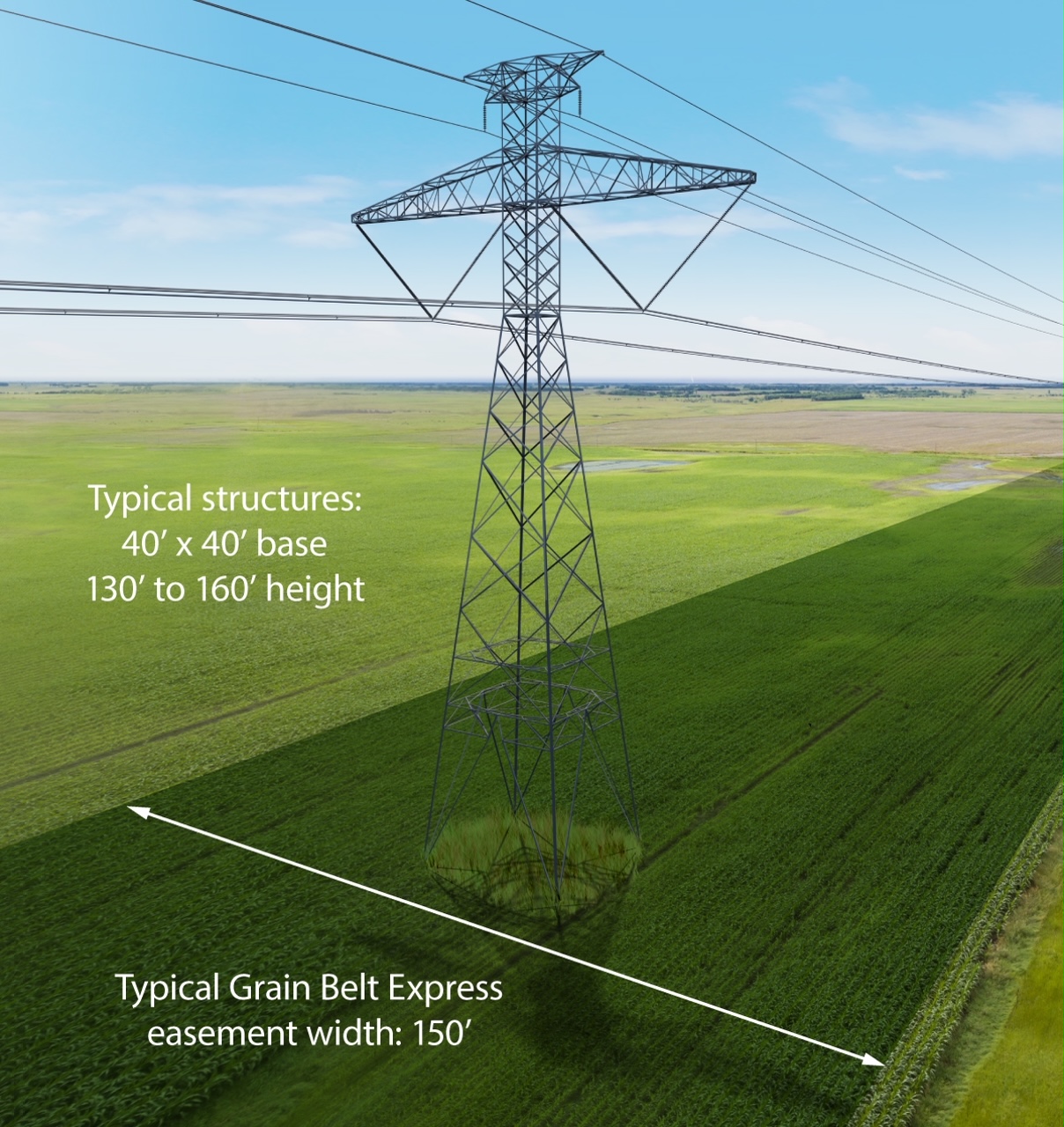16:50
News Story
Missouri governor to sign compromise legislation after efforts to stymie Grain Belt Express
Previous versions of the legislation would have almost certainly killed the proposed 4,000 megawatt transmission line.
Gov. Mike Parson plans to sign legislation requiring electrical transmission line developers to pay farmers more for easements on their land, his office announced Wednesday.
Parson will be in Sedalia Saturday for a Missouri Cattlemen’s Association steak fry and plans to sign the legislation, requiring that landowners be paid 150% of fair market value for land taken through eminent domain for electrical transmission projects.
For years, Republican legislators sought hard-line eminent domain legislation that would have killed the Grain Belt Express, a high-voltage line planned for northern Missouri. This year, those proposals gave way to a compromise bill.
Chicago-based Invenergy has been working for years to develop the 4,000 megawatt transmission line which is expected to carry clean energy from southwest Kansas across Missouri and Illinois, ending at the Indiana border.
To do so, Invenergy needs easements on landowners’ property across northern Missouri. It has obtained thousands of parcels through negotiations with landowners. But in the event landowners refuse to sell, it can take property through eminent domain and compensate them.
Previous versions of the legislation would have required that electrical transmission lines first get approval from county commissions in the counties they will pass through. Given that county commissioners in some of the eight counties Grain Belt will transect opposed the project, that legislation was seen as an effort to kill it.
Aside from increasing the amount of money transmission lines would have to pay, the bill would require that developers start construction within seven years of getting easements. Otherwise their rights to the property would expire.
It would also require that court-appointed commissions tasked with determining the fair market value of a farmer’s land during eminent domain proceedings include a farmer who has lived in the area for at least a decade.
Previous versions of the bill would have required that at least 50% of power carried by a transmission line be dropped off for use by Missouri ratepayers. The compromise version would require that an amount of power proportional to the length of the line through Missouri be made available to residents.
Legislation targeting Grain Belt has typically found support among agricultural groups, county commissioners and landowners reluctant to agree to an easement on their land. They argue Grain Belt uses the power of eminent domain to build the line for profit with no benefit to Missourians.
Environmental groups and local power utilities opposed previous versions of the bill. Some said it unfairly targeted clean energy as opposed to natural gas pipelines that can take land through eminent domain.
Dozens of municipal utilities in Missouri have signed agreements to purchase power carried on the Grain Belt Express line.
Missouri Rep. Mike Haffner, R-Pleasant Hill, sponsored the legislation.
It passed the House 111-32 with some members absent. Every Republican present and 10 Democrats voted for it. In the Senate, it passed 19-10 on a party-line vote.
Our stories may be republished online or in print under Creative Commons license CC BY-NC-ND 4.0. We ask that you edit only for style or to shorten, provide proper attribution and link to our website. AP and Getty images may not be republished. Please see our republishing guidelines for use of any other photos and graphics.





